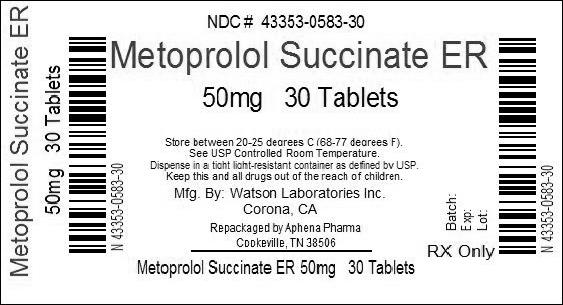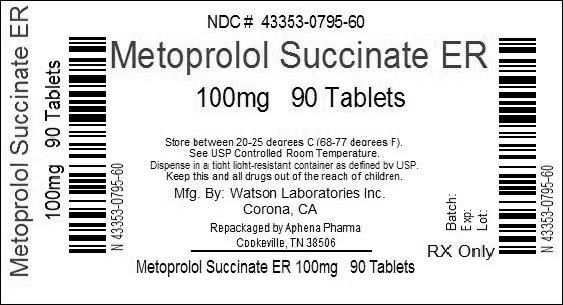Metoprolol Succinate Tablet, Film Coated, Extended Release while Breastfeeding

What is Metoprolol Succinate Tablet, Film Coated, Extended Release used for?
Is Metoprolol Succinate Tablet, Film Coated, Extended Release safe to use while breastfeeding? Can it interfere with growth and development of my kid?

8.3 Nursing Mothers Metoprolol is excreted in breast milk in very small quantities. An infant consuming 1 liter of breast milk daily would receive a dose of less than 1 mg of the drug. Consider possible infant exposure when metoprolol succinate extended-release is administered to a nursing woman.
Metoprolol Succinate Tablet, Film Coated, Extended Release Breastfeeding Analsys
Metoprolol tartrate while Breastfeeding
SafeCAS Number: 51384-51-1
It is excreted into breast milk in non-significant amount without side-effects observed among infants whose mothers were taking this medication. Plasma levels in those infants were very low or undetectable. The American Academy of Pediatrics says that it is usually compatible with breastfeeding.
Metoprolol Succinate Tablet, Film Coated, Extended Release Breastfeeding Analsys - 2
Metoprolol tartrate while Breastfeeding
CAS Number: 37350-58-6
Because of the low levels of metoprolol in breastmilk, amounts ingested by the infant are small and would not be expected to cause any adverse effects in breastfed infants. Studies on the use of metoprolol during breastfeeding have found no adverse reactions in breastfed infants. No special precautions are required.

What should I do if already breastfed my kid after using Metoprolol Succinate Tablet, Film Coated, Extended Release?
Metoprolol Succinate Tablet, Film Coated, Extended Release is safe in breastfeeding and should not create any health problem for your baby but in case you feel any health issue associated with Metoprolol Succinate Tablet, Film Coated, Extended Release you should contact your doctor or health care provider. Be it pregnancy or lactation you shall keep your doctor informed.
My health care provider has asked me to use Metoprolol Succinate Tablet, Film Coated, Extended Release, what to do?
Definitely, Metoprolol Succinate Tablet, Film Coated, Extended Release is safe in lactation for baby. No wonder your doctor has recommended it.
If I am using Metoprolol Succinate Tablet, Film Coated, Extended Release, will my baby need extra monitoring?
No extra baby monitoring required while mother is using Metoprolol Succinate Tablet, Film Coated, Extended Release
Who can I talk to if I have questions about usage of Metoprolol Succinate Tablet, Film Coated, Extended Release in breastfeeding?
US
National Womens Health and Breastfeeding Helpline: 800-994-9662 (TDD 888-220-5446) 9 a.m. and 6 p.m. ET, Monday through Friday
UK
National Breastfeeding Helpline: 0300-100-0212 9.30am to 9.30pm, daily
Association of Breastfeeding Mothers: 0300-330-5453
La Leche League: 0345-120-2918
The Breastfeeding Network supporter line in Bengali and Sylheti: 0300-456-2421
National Childbirth Trust (NCT): 0300-330-0700
Australia
National Breastfeeding Helpline: 1800-686-268 24 hours a day, 7 days a week
Canada
Telehealth Ontario for breastfeeding: 1-866-797-0000 24 hours a day, 7 days a week
